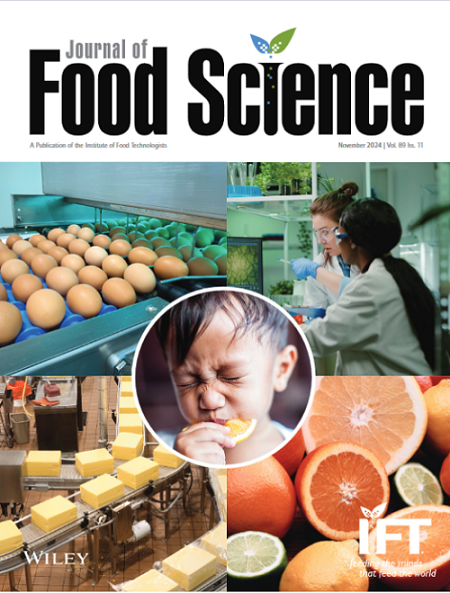Analytical insight into caffeine extraction from typica coffee leaves based on crystallinity enhancement, optical phonon vibration upshift, and morphological evolution
Abstract
Caffeine extracted from callus cultures by in vitro technique induced from typica coffee (Coffea arabica L. var. typica) leaves was successfully carried out by a simple Soxhlet method. Analysis of X-ray diffraction patterns showed an increase in crystallinity fraction from leaves (13.56%) to callus (14.46%) and then to caffeine (39.18%). Crystallite size also varied, with average sizes of 18 ± 6, 69 ± 51, and 32.5 ± 17 nm for leaves, callus, and caffeine, respectively. Fourier transmission infrared absorption data confirmed the presence of hydroxyl (OH) groups bound to carbon (C─COH), indicating caffeine content. The high stability of the C─COH is indicated by the broad optical phonon vibrations of the leaves: 247 cm−1 to caffeine: 963 cm−1. Quantitative analysis of dielectric function and electron loss function intensity peaks of each sample showed that leaves efficiently capture and store light energy while caffeine has less potency. Scanning electron microscopy analysis showed irregular shapes of leaves, oval round shapes for callus, and rectangular crystals for caffeine due to crystal orientation during transformation and had a strong correlation with crystallinity fraction. Finally, the structure-based identification, chemistry, optical-dielectric function, and micro-surface properties have been fully studied, thus unmasking the phenomenon of slow transformation from leaves to caffeine form.
Practical Application
The result of this study can be applied to uncover new methodologies related to the classification, and biotechnological utilization of callus culture based on structural properties, optical-dielectric function, and micro-surface analysis. Methodologically, the resulting callus culture provides a sustainable and controllable supply of plant material for caffeine extraction, thereby reducing traditional methods involving field-grown plants and avoiding the use of pesticides.



 求助内容:
求助内容: 应助结果提醒方式:
应助结果提醒方式:


